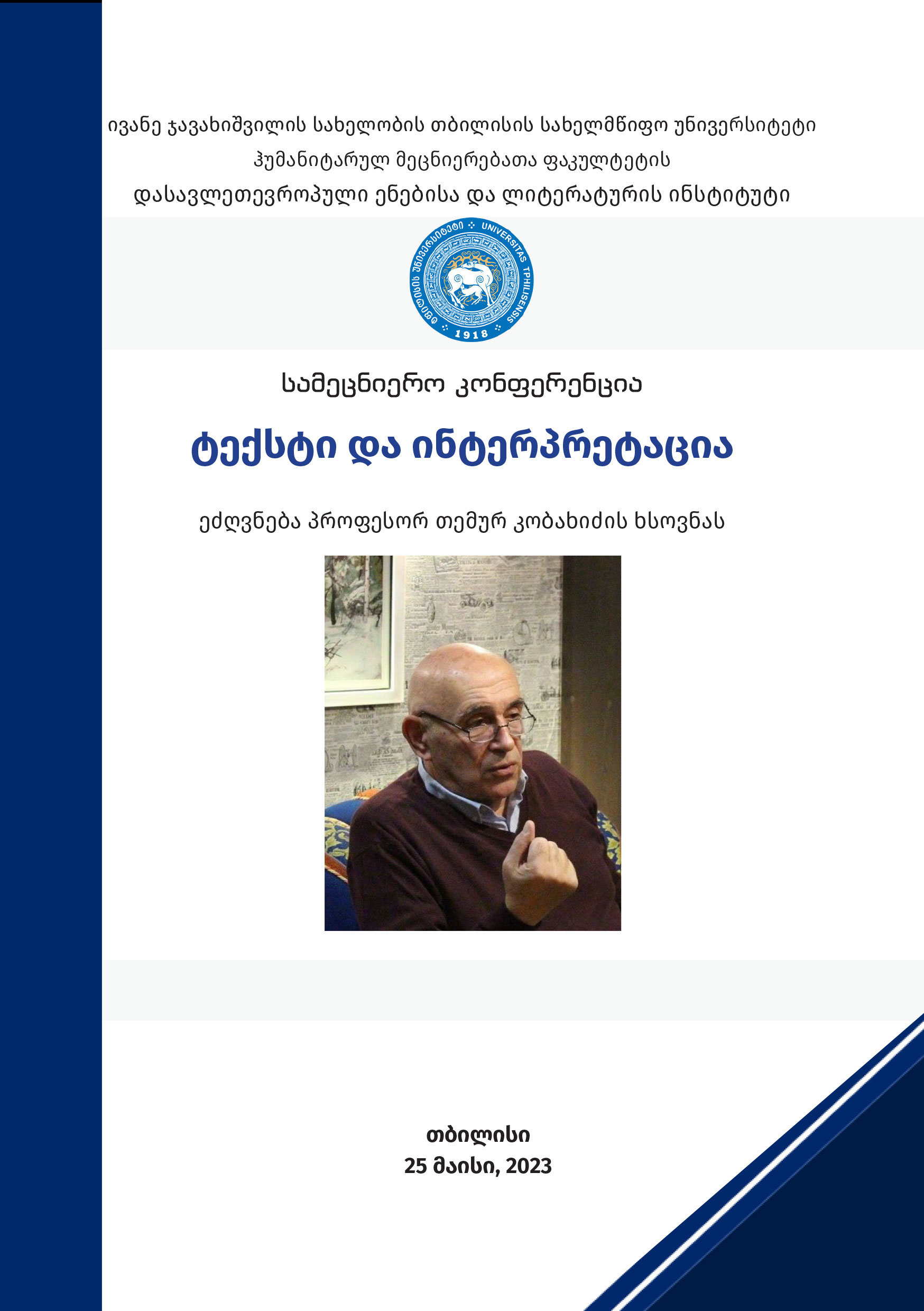Some Theoretical and Methodological Problems of Text Interpretation
DOI:
https://doi.org/10.55804/jtsu-2960-9461-2023-16Keywords:
text, interpretation, literature, hermeneutics, author, reader, context.Abstract
The phenomenon of the text reaches back to the beginning of the world itself: God created the world with words, the text spoken by God brought it from non-existence into existence. When God spoke the first words, the first text to Adam, that was the first time man interpreted text.
The goal of biblical hermeneutics is to correctly understand the truth stated in the text of the Bible, whereas literary hermeneutics tries to convincingly interpret the artistic text with various relative methods and criteria such as text-, author-, reader-, and context-oriented approaches. All these approaches to interpreting a literary text are valuable, and when combined with each other, they are likely to yield better results.
Today’s modernity clearly prefers the context-, or more precisely, the modern-context-oriented method, even when dealing with a text that is centuries old. This turns out to be more of a commentary on modernity than a real interpretation of the artistic text.
The understanding of an artistic text of any era is more or less always influenced by the reader’s worldview and his/her contemporary time. In the book dedicated to T. S. Eliot’s work, Temur Kobakhidze (2015, p. 10) notes that the modern interpretation of Shakespeare’s work is very different from the perception of Shakespeare’s time. The same Eliot (1998, pp. 57-58) calls Shakespeare’s Hamlet an artistic failure because, in his opinion, Hamlet’s emotion exceeds the events around him. Temur Kobakhidze (2004, p. 41) ascribes Eliot’s position to the peculiarity of his aesthetic vision as a modernist writer, for whom the integrity and high pathos of the Renaissance humanist worldview was unacceptable. Therefore, Hamlet’s tragic feelings seem exaggerated to Eliot.
More or less, every reader measures the world, evaluates events, understands texts by the standards of his/her life and professional activity. For example, Sigmund Freud (1992, pp. 367-368) sees the Oedipus complex in Hamlet. Harold Bloom (1994, p. 376), however, believes that Hamlet does not have the Oedipus complex, but Freud has the Hamlet complex.
In a book devoted to the interpretation of Shakespeare’s Hamlet, Harold Bloom (2009, p. 10) suggests that Hamlet as a character is perhaps a representation of the beginning of meaning, its invention, and its inexhaustibility.
Hamlet’s well-known relativistic view that “there is nothing either good or bad but thinking makes it so” (Shakespeare, 2003, p. 141) is perhaps particularly well suited to the subjective and relative phenomenon of interpreting a literary text.
The possibility of real interpretation of a text is completely questioned by the Literature of the Absurd, for which the meaning of human existence is incomprehensible, the world is inexplicable, words and texts are ambiguous. Samuel Beckett’s Waiting for Godot is one of the most striking examples in this regard. The play offers many possibilities of conflicting interpretations, which may indicate its high artistic value, but in the end, any attempt to understand it leads to nowhere, and if we still think that it leads to somewhere, Beckett would undoubtedly have told us: I didn’t mean that.
The suitability of the methodological approaches selected for the interpretation of a particular text is highly dependent on careful consideration of the specifics of the field to which this text belongs. Thus, one of the main goals of modern hermeneutics – to develop a common hermeneutic methodology for all types of texts – is devoid of common sense.
Not only written but also oral discourse can be understood as a text. Oral literature consists exactly of oral artistic texts. But a text may be neither written nor oral. Such a text is a person’s thoughts, an interior monologue, a stream of consciousness, which also finds its reflection in fiction. Unlike written and oral texts, interior text can be interpreted only by its author, if he/she observes his/her own thoughts. And the all-seeing God knows perfectly all the thoughts of all of His living creatures, even before they are thought.
Globalist narratives and discourse exert a great propagandistic pressure on human consciousness and worldview, including the content and form of contemporary literary texts, as well as their interpretation. However, interpretation is a responsibility before the Supreme Creator, even the interpretation of an artistic text, and even more so, of the Holy Scriptures – the divine text.

